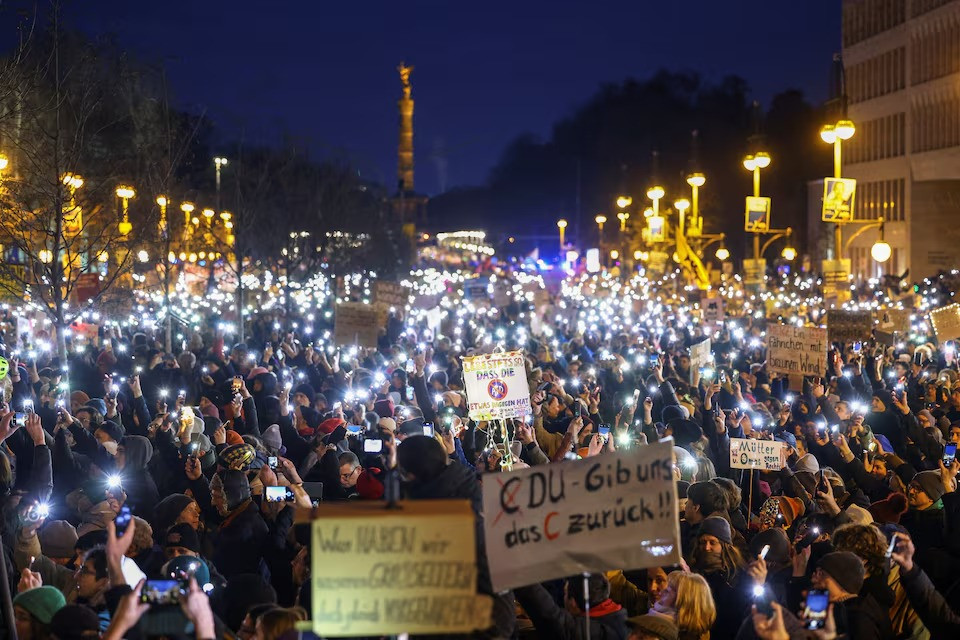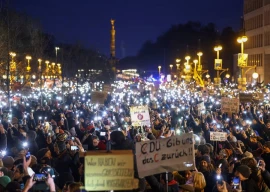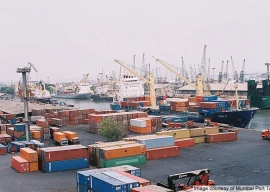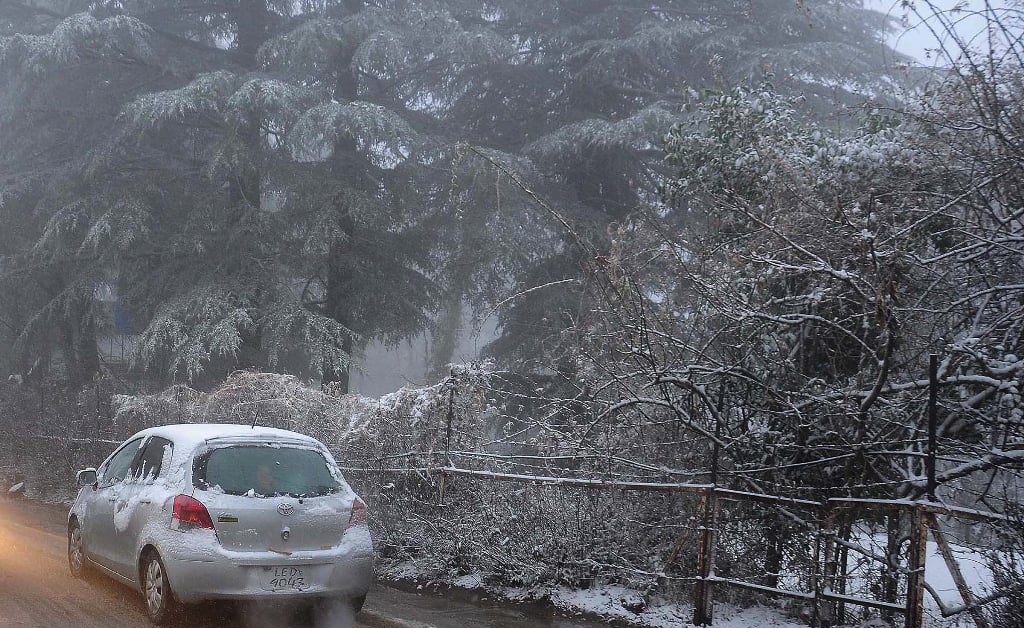
Thousands of individuals demonstrated in Berlin on Sunday against a proposal to restrict immigration, introduced by the opposition conservatives and backed by the far-right Alternative for Germany (AfD).
Friedrich Merz, leader of the conservative bloc and a frontrunner to become Germany's next chancellor in the national election scheduled for 23rd February, put forward the draft legislation with the support of the AfD. This move broke a long-standing convention against collaborating with the far-right party.
Approximately 160,000 protesters assembled at Berlin’s Brandenburg Gate, adjacent to the Bundestag, as reported by Berlin police. Many carried banners with slogans such as “We are the firewall, no cooperation with the AfD” and “Merz, go home, shame on you!”.
On Friday, Merz, the CDU/CSU’s candidate for chancellor, attempted to advance the immigration bill in the lower house of parliament but was unsuccessful in securing a majority. Some members of his own party refused to support the legislation.
His inability to gain sufficient backing weakened his position, particularly as he had advocated for the law despite warnings from colleagues that aligning with the far-right could damage his reputation.
Germany’s mainstream political parties have traditionally united to block the AfD, which is monitored by the country’s security agencies, from influencing legislation. This collective stance is often described as a firewall against the far-right.
The proposed law aimed to impose stricter regulations on family reunifications for certain refugees and to increase the number of individuals denied entry at the border. A recent poll suggested that two-thirds of the public favour stricter immigration policies.
Merz defended the proposal as a necessary response to a series of high-profile attacks in public spaces involving individuals with migrant backgrounds.
However, Chancellor Olaf Scholz’s Social Democrats (SPD) and the Greens argued that the measures would not have prevented the incidents and would contravene European law.
On Saturday, similar protests took place in several German cities, including Hamburg, Stuttgart, and Leipzig, where tens of thousands of people demonstrated against both the CDU/CSU and the AfD.























COMMENTS
Comments are moderated and generally will be posted if they are on-topic and not abusive.
For more information, please see our Comments FAQ